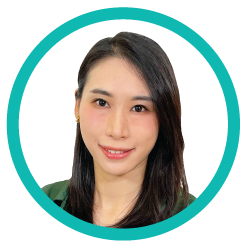To Apply or Not to Apply : 5 Must-Ask Questions for Singapore Permanent Residency
After you had been holding your Singapore Employment Pass, you’re eligible to apply for Singapore Permanent Resident status. At the moment you opt for it, you have the opportunity to include your family with you if they are:
- your spouse
- your unmarried children aged below 21 who were born to you during a legal marriage or legally adopted
So, you have to consider the pros and cons of becoming Singapore PR for your spouse and your kid.
National Service Liability
The most significant concern of becoming PR is your male children will have an obligation of Singapore National Service (NS). As stated in the Enlistment Act, all second-generation male PRs are liable for NS once they turn 13 years old and must enlist for NS once they reach the age of 18. Even if they are not residing in Singapore or the holder of residency of other jurisdictions, the Singapore NS is still mandatory.
When your son becomes a Singapore PR at the age of below 18 under the sponsorship of you, your son must enlist for NS even he has never been living in Singapore and has no plan to do so.
Since 2017, the Singapore High Court has signaled that the court will focus imprisonment sentence against NS defaulting. The court has sentenced thirteen Singaporean to jail; most of the convicts have to finish their NS before punishment.
If your son does not enlist the duty without approved exemption, he becomes a suspect of NS defaulter; then, his name is put in the police gazette and stop list. Law enforcement will arrest him when he returns to Singapore. The Singapore Ministry of Defense will prosecute him in charge of NS evasion under the Enlistment Act, and he will be subject to a maximum three years imprisonment, a fine of SG$10,000 or both if convicted.
Singapore government has set out a tightened scheme to punish the NS evaders. Second-generation PRs, who renounce their PR status without serving NS, will face adverse consequences. Their failure to serve NS will be taken into account should they attempt to apply to return to Singapore to study or work. Notably, their PR renouncement application will not succeed.
High Cost of Living in Singapore
Singapore offers a clean, safe, and high standard of living comparable with Japan. Understandably, a good quality of living comes at a price. The famous Mercer Cost Of Living Survey has ranked Singapore in the top 10 most expensive cities in the world for a decade.
However, if you are living in Hong Kong, where just named as the most expensive city for living by the Mercer survey in 2018, you should find Singapore a better place because your housing expense is less! Whether you want to rent or buy, you will find available apartments spring everywhere. Combining with the state-of-the-art public transport system and dense population, you should reach the CBD in an hour for work even if you are living in the remotest housing estate. But, for expats who have been living in freestanding houses in their home countries will be shocked that property prices are very high there when they seek similar living conditions.
Most expats will be surprised by how expensive to buy alcohol and own a car here. All liquor and alcohol are heavily taxed at a high rate, so spending some good time in bars and clubs will be expensive. Private cars are not only taxed equivalent to not less than 100% of the selling price but also there is a harsh quota system to maintain the number of register vehicles.
Fierce Competition in Job Market
The high-payroll jobs in Singapore are in the banking and finance industries. There are also some opportunities in information technology and science and engineering industries.
If your spouse has substantial work experience in the banking and finance industries and a sound university qualification, there are potential opportunities open. However, competition is fierce, and because local Singaporeans are well educated, it can be very difficult to find a job that will provide sponsorship.
It is recommended that you and your family should build up your social networking presence before you arrive in Singapore. People often find work through their peers as opposed to browsing in recruit advertisements.
Comparing to HK, working in a private corporation is demanding. Work-life balance seems not working well in both cities. If you used to be a hardworking salary person in HK, you would feel satisfied in Singapore as the companies there also have a strict start time and a culture of working later than the official knock-off time.
Education System (Primary and Secondary Schooling)
Singaporean schools follow an English-based bilingual system with either Chinese, Malay, and Tamil, and they have placed the importance of maths and science education, starting from primary schooling.
There are two different types of schools in Singapore in primary and secondary schooling: international schools (or private schools) and local schools (government-funded schools and government-subsided schools). The majority of children joined the local education system. As you can guess, the tuition fee for private schools is undoubtedly expensive, ranging from SG$10,000 to SG$40,000 per year. By contrast, public schools are much affordable, with their annual fee starting from SG$1,500 to SG$10,000. Additionally, private schools charge the costly handling fee on application and admission.
For placement in public schools, Singaporean citizens have the highest priority in choosing the particular school for their children to enroll, the permanent residents come secondly, and non-PR foreigners have to accept whatever the authority offer.
Finally, Singapore public schools and Singaporean parents have a traditional exam-focused culture. The pupils are encouraged to strive for achievements not only in their curriculum but also in their extra-curriculum activities. Apart from doing homework and revision for examinations, they will join sports teams, clubs, and uniformed groups and take part in competitions and performances to ensure their academic portfolio will shine among the others.
So, the system is quite similar to HK.
Affordable Medical System with CPF
Singapore’s healthcare system is praised for its high efficiency, affordable and broad coverage internationally: the hospitals are overwhelmingly public, the majority of doctors work directly for the nation, patients can use their mandatory healthcare saving account to pay for medicine, and the government subsidizes many medical bills.
The system is financially possible because of a mix of direct government subsidies, the Central Provident Fund (CPF) of the Singapore working people, universal and compulsory healthcare insurance, and cost-sharing.
Think of CPF as your social security account. It requires a working person in Singapore to contribute 20% of their salary to it.
Singapore public healthcare consists of medical institutions that are operating by government-owned corporations with the government designed healthcare insurance products for the market to fit.
Regular Singaporean go routine health checkups regularly as they can pay the bills from their Medisave insurance, which is an account of their CPF.
Once you are working in Singapore as a PR, you should feel safe and get covered financially. Otherwise, medical expense is costly for foreigners.
Contact AsiaBC to book a free consultation of relocating to Singapore. We are a service provider of Singapore company formation and Singapore Permanent Residency consultation.

![Asia Business Centre (Asia Business Centre (AsiaBC) [HK+SG Bank Account Opening / Company Formation / Company Secretary / Accounting & Tax])](https://asiabc.com.cn/wp-content/uploads/Blog-Banner-To-Apply-or-Not-to-Apply-5-Must-Ask-Questions-for-Singapore-Permanent-Residency-1030x464.png)

![Asia Business Centre (Asia Business Centre (AsiaBC) [HK+SG Bank Account Opening / Company Formation / Company Secretary / Accounting & Tax])](https://asiabc.com.cn/wp-content/uploads/Blog-Banner-How-to-Make-Singapore-Your-Home-Ultimate-Guide-to-SG-Permanent-Residency-Application-80x80.png)
![Asia Business Centre (Asia Business Centre (AsiaBC) [HK+SG Bank Account Opening / Company Formation / Company Secretary / Accounting & Tax])](https://asiabc.com.cn/wp-content/uploads/Blog-Banner-Unlock-the-Doors-to-Singapore-Insider-Tips-to-Get-Your-SG-Permanent-Residency-80x80.png)



